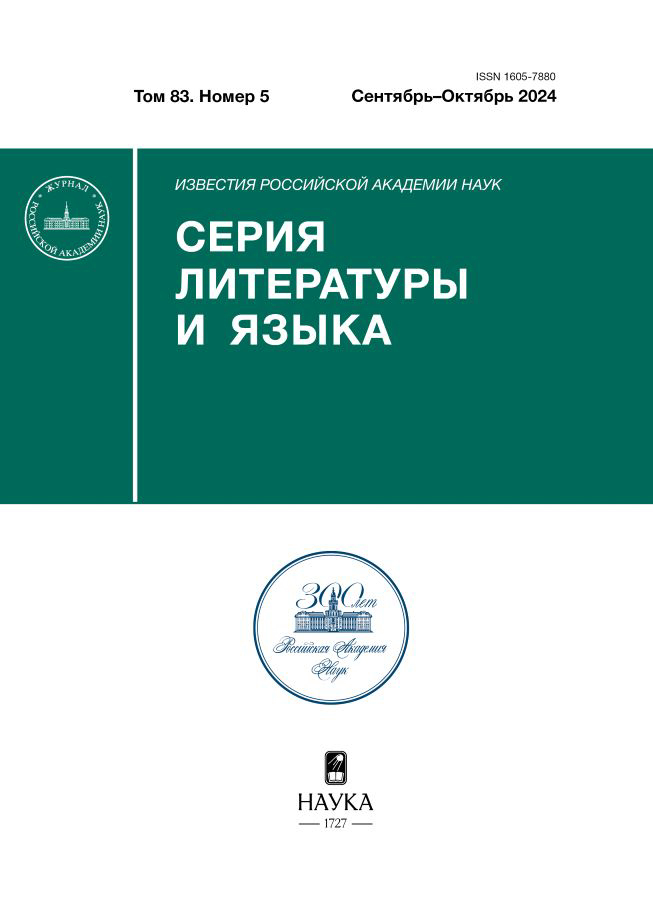Is there a proverbial expression it the beginning of Aristophanesʼ Thesmophoriazusae?
- Autores: Stepantsov S.A.1
-
Afiliações:
- А.М. Gorky Institute of World Literature of the Russian Academy of Sciences
- Edição: Volume 83, Nº 5 (2024)
- Páginas: 96-102
- Seção: Articles
- URL: https://rjonco.com/1605-7880/article/view/657042
- DOI: https://doi.org/10.31857/S1605788024050086
- ID: 657042
Citar
Texto integral
Resumo
Most of Aristophanesʼ commentators, as well as the author of the ancient scholium, believe that Inlawʼs words “Will a swallow ever appear!” in the first line of Aristophanesʼ comedy Women at the Thesmophoria (Thesmophoriazusae) contains a proverbial expression and means: “Will there ever be an end to suffering!” In the 20th century this opinion was denied by Jan van Leeuwen. Van Leeuwen’s doubts are justified: an analysis of references to the swallow in Greek literature shows only that the swallow was strongly associated with the arrival of spring, but the discussed passage from Aristophanes is the first and only case in classical Greek literature when the appearance of a swallow does not just mean the beginning of spring (metonymically), but also relief in general (metaphorically). There is not enough evidence to confirm that such a figurative mention of swallow was proverbial, although this is very likely. If such a proverb was indeed in circulation, then at the beginning of Thesmophoriazusae it is attested for the first time, and this comedy itself is the only one in Aristophanes in which a characterʼs discontent, usual for the prologue, is uttered by means of a figurative paremic expression.
Palavras-chave
Texto integral
Sobre autores
Sergey Stepantsov
А.М. Gorky Institute of World Literature of the Russian Academy of Sciences
Autor responsável pela correspondência
Email: stephanicus@mail.ru
Cand. Sci. (Philol.), Senior Researcher
Rússia, 25a Povarskaya Str., Moscow, 121069Bibliografia
- Scholia in Thesmophoriazusas, Ranas, Ecclesiazusas et Plutum. (Scholia in Aristophanem, Pars 3, Fasciculus 2/3 continens scholias in Arisctophanis Thesmophoriazusas et Ecclesiazusas). Ed. R.F. Regtuit. Groningen: Egbert Forsten, 2007. VI, 131 p.
- The Comedies of Aristophanes. Vol. 8. Thesmophoriazusae. Edited with translation and notes by Alan H. Sommerstein. Warminster: Aris & Phillips, 1994. XII, 242 p.
- Aristofane. Le donne alle tesmoforie. A cura di C. Prato. Traduzione di Dario Del Corno. Milano: Mondadori, 2001. LXXXVI, 386 p.
- Aristophanes. Thesmophoriazusae. Edited with introduction and commentary by C. Austin and S.D. Olson. Oxford: OUP, 2004. CVI, 363 p.
- Commentarii in Aristophanis comoedias. Collegit digessit auxit G. Dindorfius. Vol. VI. Commentarii in Lysistratam et Thesmophoriazusas et indices in commentarios interpretum. Lipsiae: in libraria Weidmannia, 1821. VI, 436 p.
- Deubner L. Attische Feste. Darmstadt: Wissenschaftliche Buchgesellschaft, 1962. 266 S.
- Aristophanis Thesmophoriazusae. Cum prolegomenis et commentariis edidit J. van Leeuven. Lugduni Batavorum, apud A.W. Sijthoff, 1904. XVI, 156.
- Thompson D.W. A glossary of Greek birds. Oxford: Clarendon Press, 1936. VIII, 342 p.
- Poetae comici graeci. Volumen III 2: Aristophanes. Testimonia et fragmenta. Ed. Rudolf Kassel, Colin Austin. Berlin; New York: De Gruyter, 1984. XXVII, 444 p.
- Poetae comici graeci. Volumen IV: Aristophon–Crobylus. Ed. Rudolf Kassel, Colin Austin. Berlin; New York: De Gruyter, 1983. XXXII, 367 p.
- Aristotelis Ethica Nicomachea. Recognovit brevique adnotatione critica instruxit L. Bywater. Oxonii: E typographeo Clarendoniano, 1894. VII, 264 p.
- Corpus paroemiagraphorum graecorum. Ediderunt E.L. Leutsch et F.G. Schneidewin. T. 1. Gottingae: Vandenhoeck et Ruprecht, 1839. XXXIX, 536 p.
Arquivos suplementares










